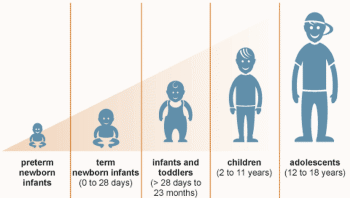Lesson 2: Developmental Theories
Attention

I got this graphic from a really neat website which outlines some of the major theories of human development.
Click HERE to visit the website.
Learning Outcomes
Upon completion of this lesson's material, students will be able to:
- Apply basic theoretical constructs to events in one's life
Teaching
Throughout the years psychologists have been trying to understand how people change. Observations led to ideas, ideas led to experiments, and experimental results led to theories...
Recurring Issues
Thoughout time there have been reaccuring issues and concerns regarding how people change.
- Nature vs. Nurture (You have likely heard this one...to what degree is development and change a function of Genetics and to what degree is it a function of Environment?)
- Continuity vs. Discontinuity (This asks the basic question as to how we change...do we gradually modify our behavior or do we take developmental "leaps" at particular ages where abilities seem to almost magically appear?)
- Universal vs. Contextual (This asks if the particular developmental pathways that we see are shared by ALL people in the world, or are there regional/racial/ethnic/cultural factors that modify the way we develop---Yes, this questions is SORT of like the Nature vs. Nurture one!)
Major Historical Perspectives
- Psychodynamic (Freud)
- Learning (Watson, Skinner, and Bandura)
- Cognitive (Piaget and Kohlberg)
- Ecological (Bronfenbrenner)
- Life Course Perspective
Over time we have had great minds take on the challenge of explaining why people change. Their theories are often tainted by their historical context but they are interesting none-the-less.
The major theories that describe the data that we can collect on human development fall into five categories:
Click HERE for a VERY comprehensive review of the Life Course perspective
Assessment
Lesson 2 Discussion
Consider first what YOU think are the factors that are most responsible for what makes us who we are. Now consider you have to choose a THEORY that best fits with your notion...of the Major Historical Perspectives, which one fits with your own perspective? Now that you have been exposed to different ideas, are there other theories you now think you might want to take into consideration as well? Explain.
Instructions for ALL Graded Online Discussions This is your first graded discussion...so I thought I would include some tips as to what I'm looking for:
To get full credit for the discussion you need to not only post your own response to the prompt, but also reply to at least one other students' post. When you reply to someone else it needs to be "substantive". By this your response should be more than a "good job" or "I agree" type response. Consider these ways to respond:
I will not be repeating these directions again so apply these points to EVERY graded discussion in this class unless there are explicit instructions to the contrary! |